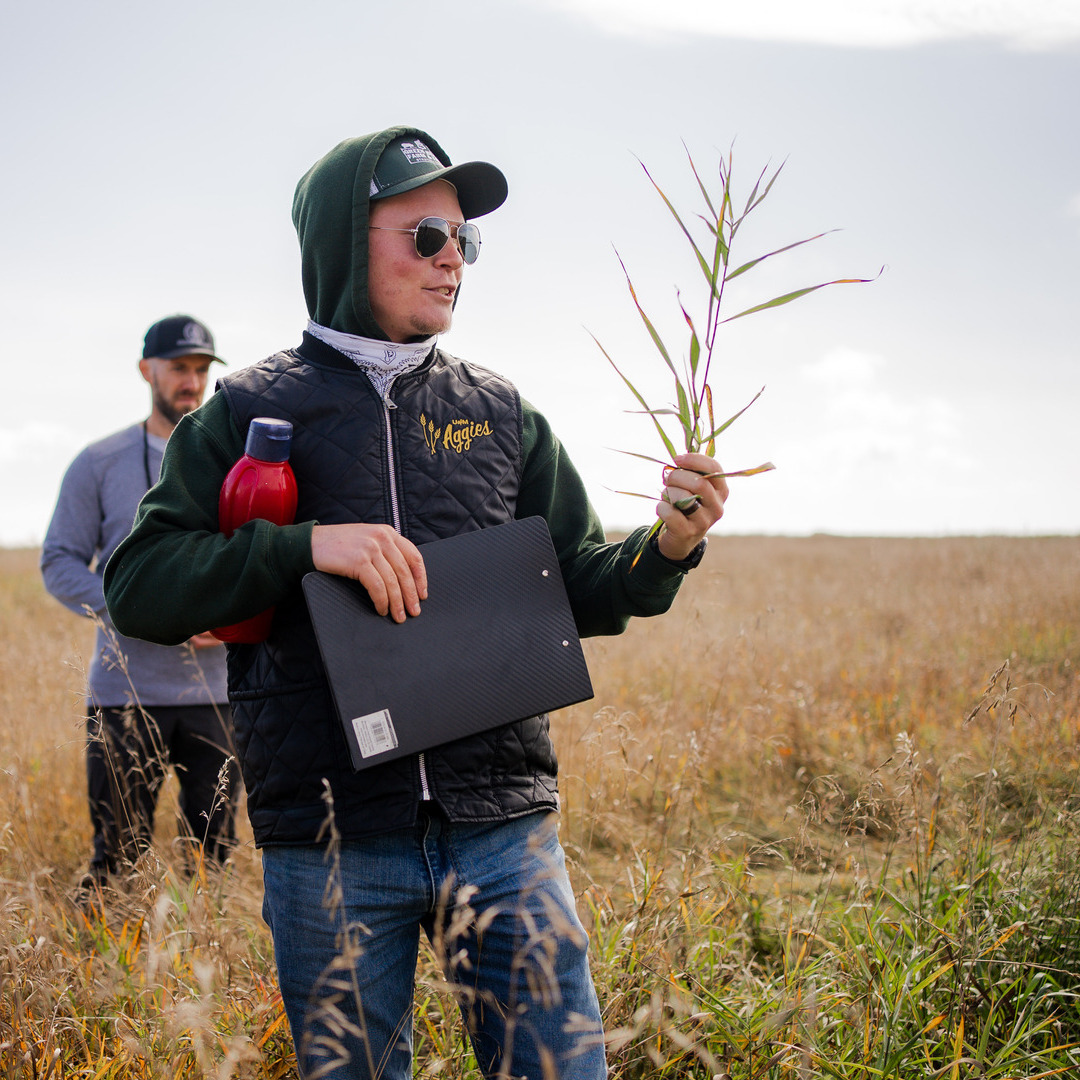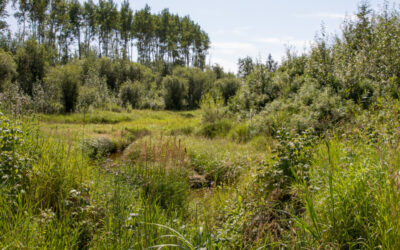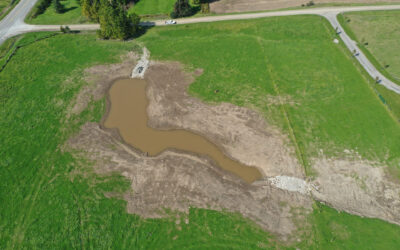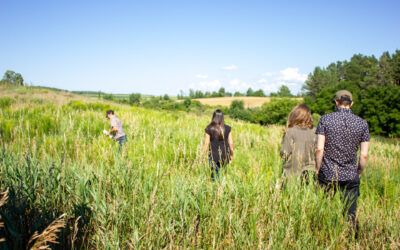A new generation of farmers finding community and peer-to-peer support through regenerative farming with ALUS
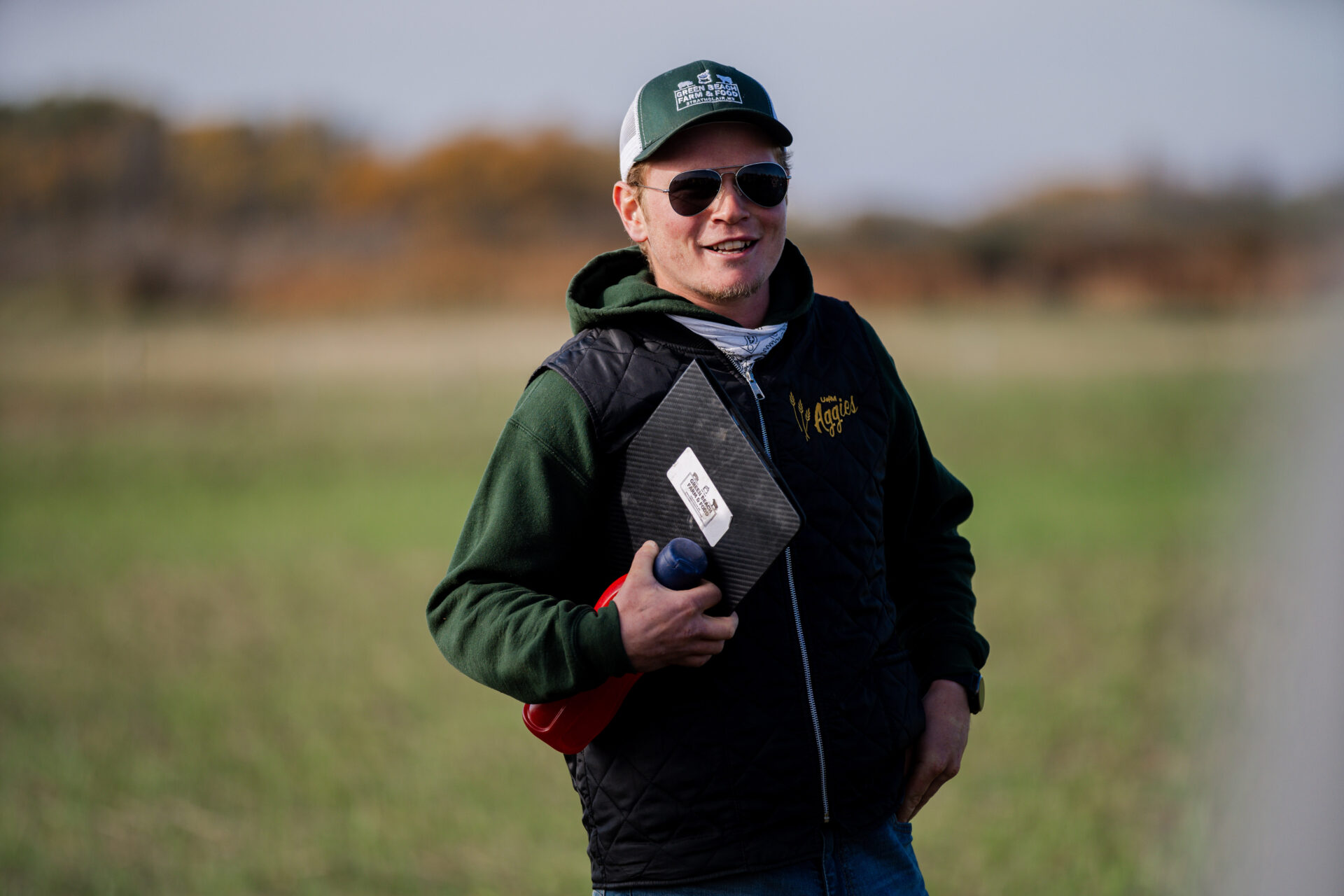
Zack Koscielny on Green Beach Farm and Food at the Prairie Hub field conference.
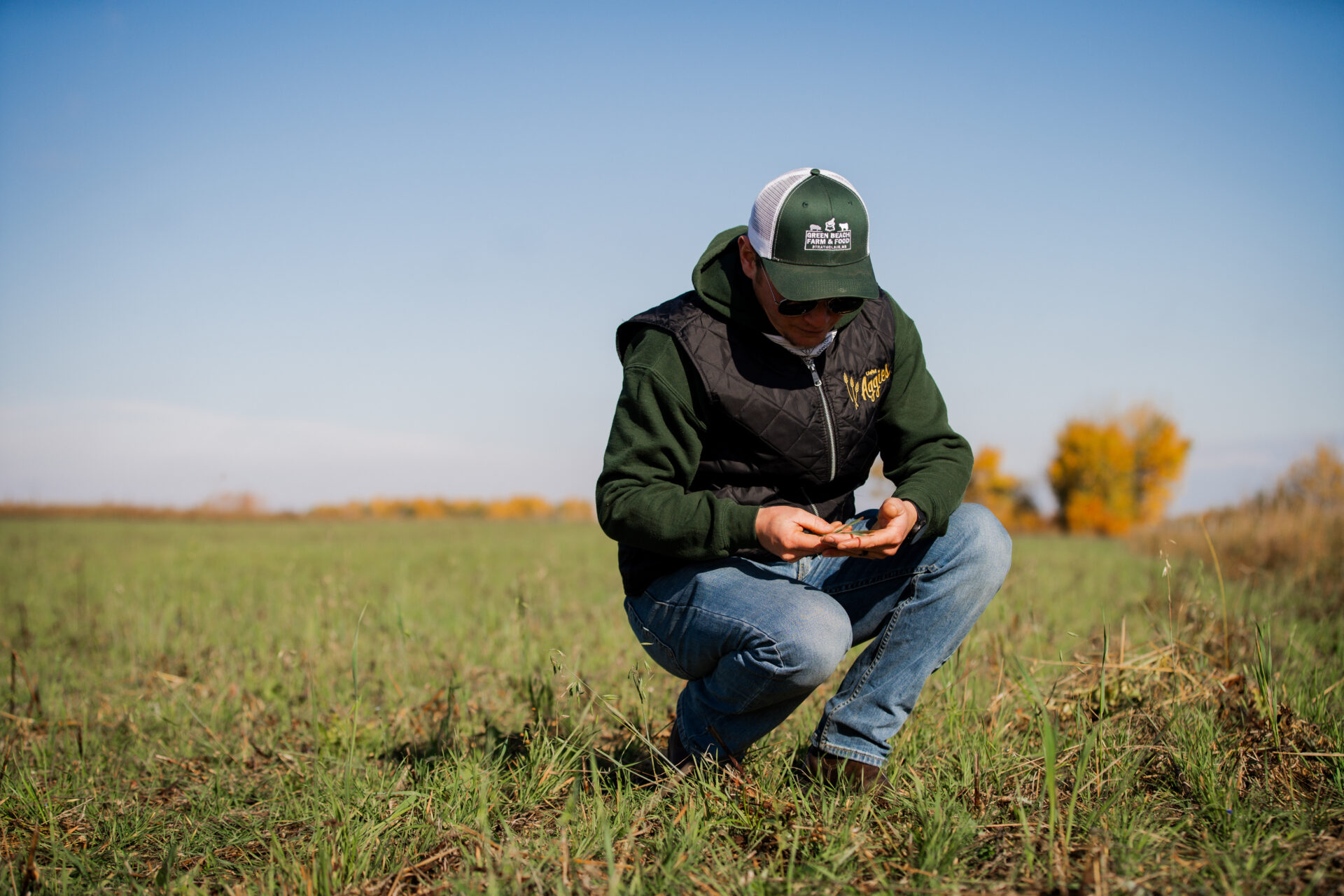
Zack examines the intercrop of winter wheat and hairy vetch that was seeded into a roller crimped cover crop on his field. In Manitoba, producers might have photosynthesis on their grain acres for roughly 60 days (about 2 months). With cover crops, producers may have plant growth from April to November.
“There’s always been a history of environmental or conservation groups being kind of at odds with farmers. But I think that’s changing a little bit. It’s just a practical thing. A lot of marginal acres you’re not able to farm very well anyways,” says Zack. “ALUS is able to open your mind to the possibilities that there is an alternative.”
In 2018, Zack returned from studying at the university in Winnipeg, Manitoba. Many local cow-calf operations have shut down in the last twenty years as market changes have altered profit margins. However, with the help of the Growing Roots program, the Koscielnys, have been able to continue their long history of managing cattle on the land, and have even increased their profitability.
“We’ve got room for more animals now, which obviously adds to the profitability, because we’re running more animals on the same number of acres,” says Zack “We’ve been able to increase our forage production on our perennial pastures and increase the size of our cattle herd every year even through drought.”
ALUS Assiniboine West has helped the Koscielnys pursue dynamic new practices, and their efforts are not going unnoticed. Collaborating with ALUS partner Birds Canada, the Koscielnys have learned interesting things about the wildlife species that inhabit their land, including the presence of species like Common Nighthawk and grouse. Zack is thrilled that research conducted on their farm will contribute to a larger understanding of bird diversity and species richness throughout the province and will support how farmers and ranchers are publicly understood as supporting the natural world. Zack’s advice to other farmers interested in ALUS is that they “go and check out somebody else’s [ALUS] project and see if you can find something that fits your needs and your goals on your farm.”
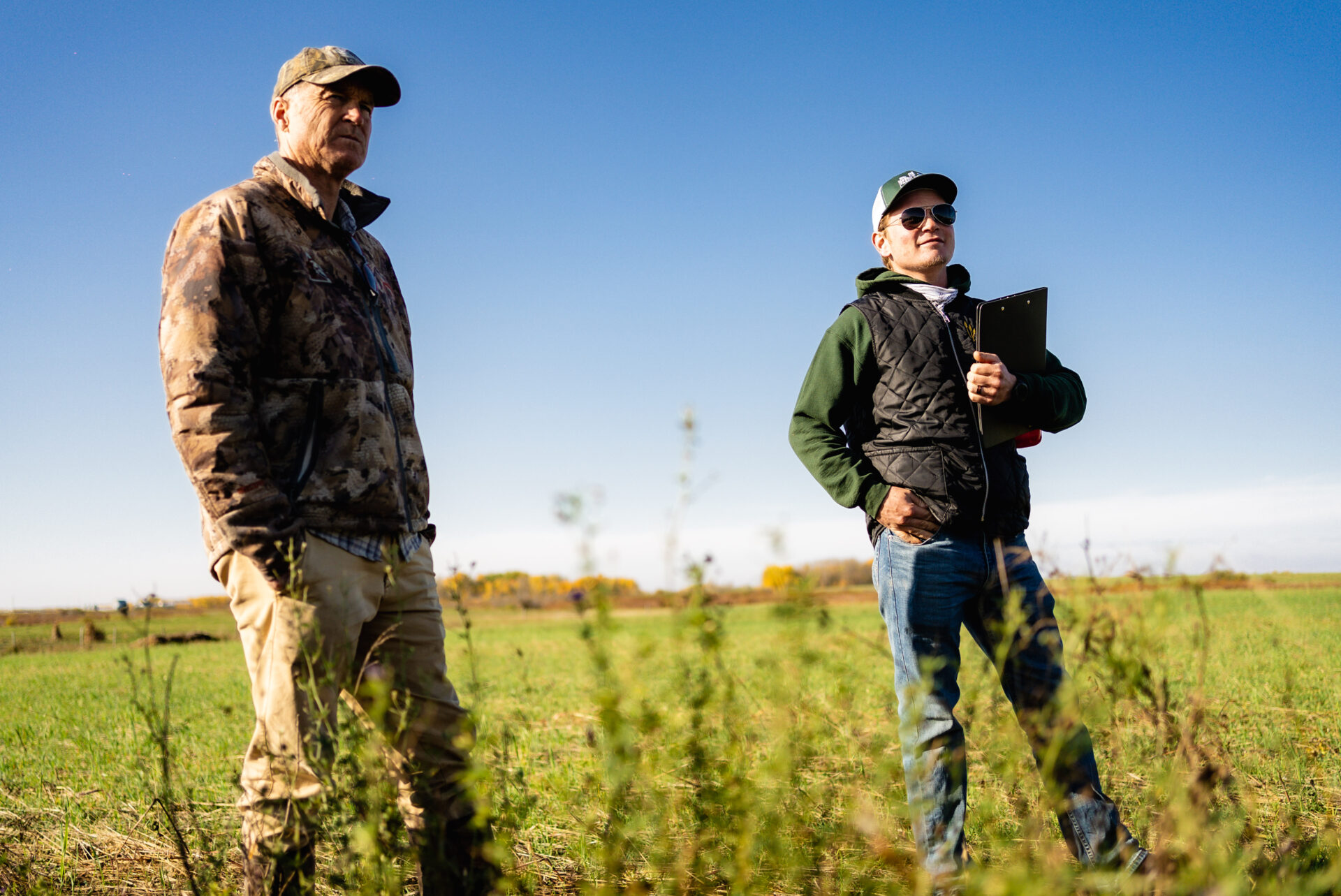
Jim Fisher, Director of Conservation and Policy with Delta Waterfowl stands with Zack.
“Once you get digging into it, a lot of people have discovered that improving the health of the soil and diversity on the farm really contributes to profitability, too.” says Zack.
Producers like Zack who are working with ALUS on new projects like Growing Roots and Grazing Forward, as well as the farmers and ranchers who have been with ALUS from the beginning are proving the biodiversity and environmental benefits of bringing together agriculture and nature.
#DYK: ALUS is always looking for feedback from ALUS participants. When recently polled, 74% of ALUS communities expressed an interest in delivering regenerative ag programming now or in the future.
Communities taking part in the Growing Roots program include ALUS Assiniboine West, ALUS Saskatchewan Assiniboine Project and ALUS Seine Rat Roseau. For more information, contact your local ALUS Coordinator or ALUS Prairies Hub Manager, Paige Englot, at [email protected].
